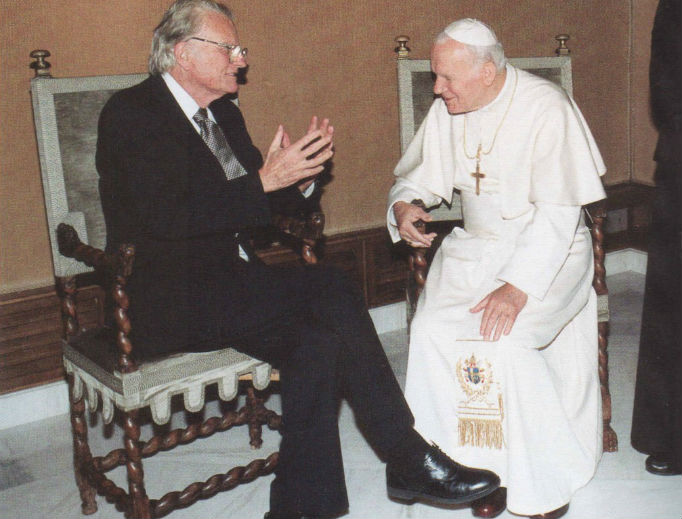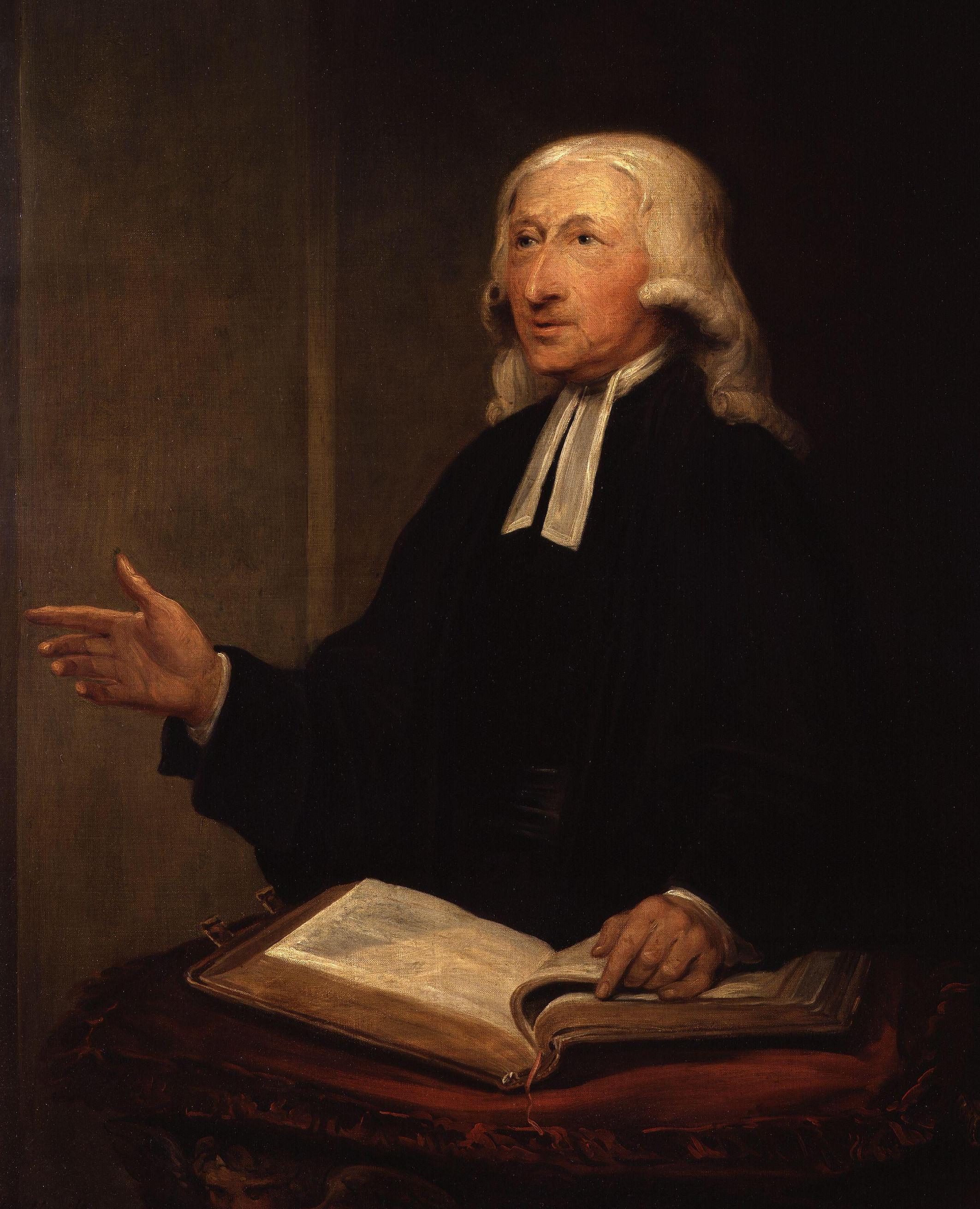As belief in the Bible was diminished by humanism, rationalism and liberal theology, Billy Graham arose to the need and mission to recover the truth of the Scripture so that “we may all be one in Him.” Billy Graham as one of the architects of the modern ecumenism movement was one of the evangelical leaders that shared ecumenical optimism and restoration of the Bible authority. Among the challenges that followed the Counter- Reformation, the aim of the ecumenical initiatives in bringing all churches and denominations together was to overcome what William Temple, then Archbishop of York and later Archbishop of Canterbury called “the sin of divisiveness in Christendom.” The first Indian Anglican bishop of Dornakal (India), Bishop Azariah during the Faith and Order Conference at Lausanne in 1927 described the “Divided Christendom … a source of weakness in the West; in non-Christian lands it is a sin and a stumbling-block. If the non-Christian world is to be won for Christ our message must be one. If our message is to be one, we must be one.’ The challenge according to the Bishop of Dornakal, Azaraiah was that ‘many European and American churches and missionary societies have carried on missionary work in different fields in Africa and Asia, and the denominational differences that exist in the home countries have been transferred to the mission fields where these divisions have become a hindrance to Christian work, a sin and a scandal.’
Beyond the challenges of church traditional structures, divisions, hierarchies and especially the ‘Great Schism’ in 1054 faced by the past ecumenical and renewal initiatives, and using the words of John Wesley, Billy Graham provided a new united platform of ‘Catholic Spirit,’ through his interdenominational crusades and ecumenical networks. My reflection is that, ‘Billy-Cumenism,’ that is, Billy Graham method of ecumenism through evangelism is not about church union, but about churches in mutual engagement to witness the love and power of God in salvation of souls. What Bishop Charles Brent, from the Philippines was made as ‘an apostle of Church Unity,’ is renewed by Graham as, ‘an evangelist for Joint Great Commission.’
On the argument that World Council of Churches (WCC) was too inclusive in theology, many evangelicals did not identify with past Ecumenical Conferences. This, among other reasons gave birth to Lausanne 1974 International Congress on World Evangelization, a follow up to the World Congress on Evangelism at Berlin in 1966 sponsored by Billy Graham on the theme: One Race, One Gospel, and One Task. The Lausanne Covenant continue to guide the church emphasis on the authority of the Scripture, urgency of world missions, problem of culture and spiritual warfare.
The emergence of the Renewal movement in the 50s spread across Christian world was backed up by Billy Graham’s yearning for Christian witness and unity with a great outpouring of the Holy Spirit transforming the whole church. In one of his works, Ecumenism: Where Is It Leading Us? Unity, Peace and Rome, Michael de Semlyen emphasised the concern to keep ‘the unity of the Spirit in the bond of peace to bring together believers in Christ, bound together by their common love of truth and their uncompromising obedience to God’s Word.’ As Graham’s crusades was breaking doctrinal and denominational barriers, different non-denominational organisation sprang to prominence. Among them are the Full Gospel Businessmen’s Fellowship International (FGBMFI) ‘bringing Catholics and Protestants together in the unity and love of the Spirit.’ God used Graham through his combination of mass evangelism in partnership with other Charismatic Renewal and ecumenical groups. Using the words of a former Archbishop of Canterbury, Dr Arthur Michael Ramsey, a leading proponent of church unity, explained that the “whole Ecumenical enterprise as the Holy Spirit working in us … avoid binding the Spirit by our stupidity and narrowness and lack of faith.”
As a confidant to a succession of popes and presidents, Graham broke human and spiritual barriers to ignite and promote church unity and evangelism. As a close friend to Queen Elizabeth II, Her Majesty once described Graham as a preacher who “… speak with such wonderful clarity and certainty…Above all things, I do think of myself as just a simple Christian.” To Graham and his ministry, “No one in Britain has been more cordial toward us than Her Majesty Queen Elizabeth…I have always found her highly intelligent and knowledgeable about a wide variety of issues, not just politics.” Semlyen explained that Graham’s approach to J.F. Kennedy’s election as president of America had “helped relations between the churches and created a better understanding between Protestant and Catholic churches in America” and outside America.
The testimony by Cardinal Cushing in 1964 about Graham emphasised that Graham have “… made a great contribution to the Ecumenical spirit because you’ve tossed a banner bearing the fact that Christians agree on more things than they disagree on.” It is on record that Graham’s mission partnership with Roman Catholicism continue to be a missional factor since 80s. Graham’s response to Pope John Paul’s visit to the US in 1979 as a launching of “a new wave of spiritual revival” coupled with his description of the Pope as “the greatest moral leader of the world” enhanced the Roman Catholic support to major evangelical mission and cooperation. Graham was not without oppositions especially on his openness and partnership with the Catholicism. Martyn Lloyd-Jones, Grattan Guinness were among evangelical leaders that opposed Graham describing the Roman Catholic Church as “… a counterfeit… a form of antichrist …’
In her Keynote address to 2018 Conference on World Mission and Evangelism organised by the World Council of Churches in Arusha, Tanzania, Rev. Dr Mutale Mulenga-Kaunda spoke about the unique African ecumenical perspective especially before the European invasion. According to her, “Africans are indeed ecumenical by nature, as we float in our indigenous/traditional, Islamic and Christian worldviews easily in order to find meaning in life and in death,” she continued. “The church, especially within the African context, has to serve as a missional resource for all people that live on the margins of their society, who are seeking to overcome forces that bequeath death.” In the words of Professor Onwuka Dike, the first Nigerian Vice-Chancellor of the University of Ibadan, the premier university in Nigeria, ‘modern missionary activities in Nigeria cannot, of course, be viewed apart from the general European invasion of the West African territories from the advent of the Portuguese.’ The invasion coupled with the crusading zeal in Europe came with one and indivisible commercial and religious issues with divisions. In agreement with the words of the Anglican bishop of Dornakal (India), Professor Bolaji Idowu, the first Patriarch, Methodist Church Nigeria, explained that modern missionary came with different denominational nomenclatures, hence Christian relationship ‘is one of regrettable tension.’
This tension gave rise to the search for ecumenical unity in the Nigerian context that climaxed with the establishment of the Nigerian Christian Council of Nigeria (CCN), the Central Organisation for the traditional Protestant Churches of Nigeria on the 14th of March 1930 comprising the mainstream Protestant churches. The vision for CCN was first proposed by a small informal gathering of missionaries who met in Oyo, Western Nigeria in November 1929 to consider the immediate set of a new Educational Proposals, ‘a United Missionary Council for Education representing all the Societies willing to join.’ This was followed by a representative gathering of Missionaries and African held at Bishopscourt, Lagos on December 16th, 1929 where it was ‘decided that a United Missionary Council should be formed and it was agreed that the area affected should be that covered by the Education Code fo the Southern Provinces, and the Council should be competent to deliberate upon all matters of Missionary Policy.’ Based on the agreement of the Missionary Societies to unite, the first meeting of the United Council was held in Lagos on the 14th of March, 1930 to the 19th of March, 1930 where the Constitution was decided and the name of the Council changed to the “Christian Council of Nigeria.” The original members of the Council were: Basel Mission, Church Missionary Society (Niger Mission), Church Missionary Society (Yoruba Mission), Church of Scotland Mission, Niger-Delta Pastorate, Nigerian Baptist Convention, Primitive Methodist Missionary Society, Qua Iboe Mission, Salvation Army, and Wesleyan Methodist Missionary Society.
The CCN, originally known as a Missionary Association which was empowered generally to deliberate upon all matters of Missionary Policy. The growth of CCN necessitated its increasing role and the development of the Nigerian Society through various activities in which the Church feels committed: ‘Education, Social, Community and Economic Development, Home and Family Life, and Church and Society.’CCN developed into a National Christian Organisation through the amendment of its constitution in 1963. The formation of CCN got impetus from the formation of the International Missionary Council (IMC) formed at Lake Mohonk, New York, in that autumn of 1921. In 1960, the Nigerian independence by the British government was laid on Graham’s Nigeria united nationwide crusade in February 1960 that covered Ibadan, Lagos, Jos, Kaduna, Enugu, and Port-harcourt. Graham’s crusade was not about church union, hence, it is important to note that the Nigerian Scheme of Church Union between Methodist Church Nigeria and the Nigerian Anglican Communion failed in 1967. In Nigeria, the Lausanne 1974 gave birth to the Nigerian Congresses on World Evangelization held in 1975, 1978, and 1981.
‘Billy-Cumenism,’ beyond the traditional concept of church union is a call to mutual witness of the gospel for the salvation of souls. For Graham, mutual witness and unity must not be at the expense of the truth, but about the Bible alone as the sole authority. During the World Council of Churches Conference in November, 1961, Graham was one of the observers at the Conference when I.M.C was integrated into the W.C.C. David Hedegard in his book, Ecumenism and the Bible, explained that many Evangelical Missions belonged to the I.M.C. through their representatives but with little impacts on W.C.C. because the theology of the Evangelical leadership was paid little attention. Graham through his magazine, Christianity Today drew attention to the Evangelical Missions by publishing different articles including ‘Ecumenical Merger and Mission,’ by Dr Harold Lindsell, of Fuller Theological Seminary. One of the main arguments of Lindsell points to the fact that, ‘Contrasted with the situation in 1911, 1928, and 1936, it becomes clear that the gap between missionary personnel and the ecumenical complex has widened steadily. More and more missionary work is being done outside rather than within the ecumenical framework.’ Lindsell’s examples of Church Union that have been no help to missionary work include the Church Union of Canada with the conclusion ‘that the Church of South India has not lived up to the expectations; union has made little or no difference in its rate of growth.’ The Church of South India was inaugurated on 27th September, 1947.
Beyond the Evangelical Missions fear and totalitarian tendency in the Ecumenical Movement and of ‘the liberal and neo-orthodox influence on the W.C.C leadership,’ Graham had fellowship with Dr Ramsey, an outstanding scholar who in 1956 and 1961 became Archbishop of York and Canterbury respectively. It was an opportunity for the integration of W.C.C formed in 1948 with the leadership of I.M.C. for mutual evangelism and salvation of souls rather than formation of Church Union. Today, just as in the age of Ecumenism, Graham’s ‘Billy-Cumenism’ stands for evangelical mission, ‘the mission which proclaim the pure Biblical Gospel to the heathen – in this age when the powerful Ecumenical Movement is trying to build a United World Church.’ In his tribute, the Archbishop of Canterbury, Justin Welby described Graham “as an exemplar to generation upon generation of modern Christians. When it comes to a living and lasting influence upon the worldwide church he can have few equals; for he introduced person after person to Jesus Christ. There are countless numbers who began their journey of faith because of Dr Graham … The debt owed by the global church to him is immeasurable and inexpressible. Personally I am profound grateful to God for the life and of this good and faithful servant of the gospel; by his example he challenged all Christians to imitate how he lived and what he did … He was one who met presidents and preachers, monarchs and musicians, the poor and the rich, the young and the old, face to face. Yet now he is face to face with Jesus Christ. his saviour and ours. It is the meeting he has been looking forward to for the whole of his life.”











Recent Comments